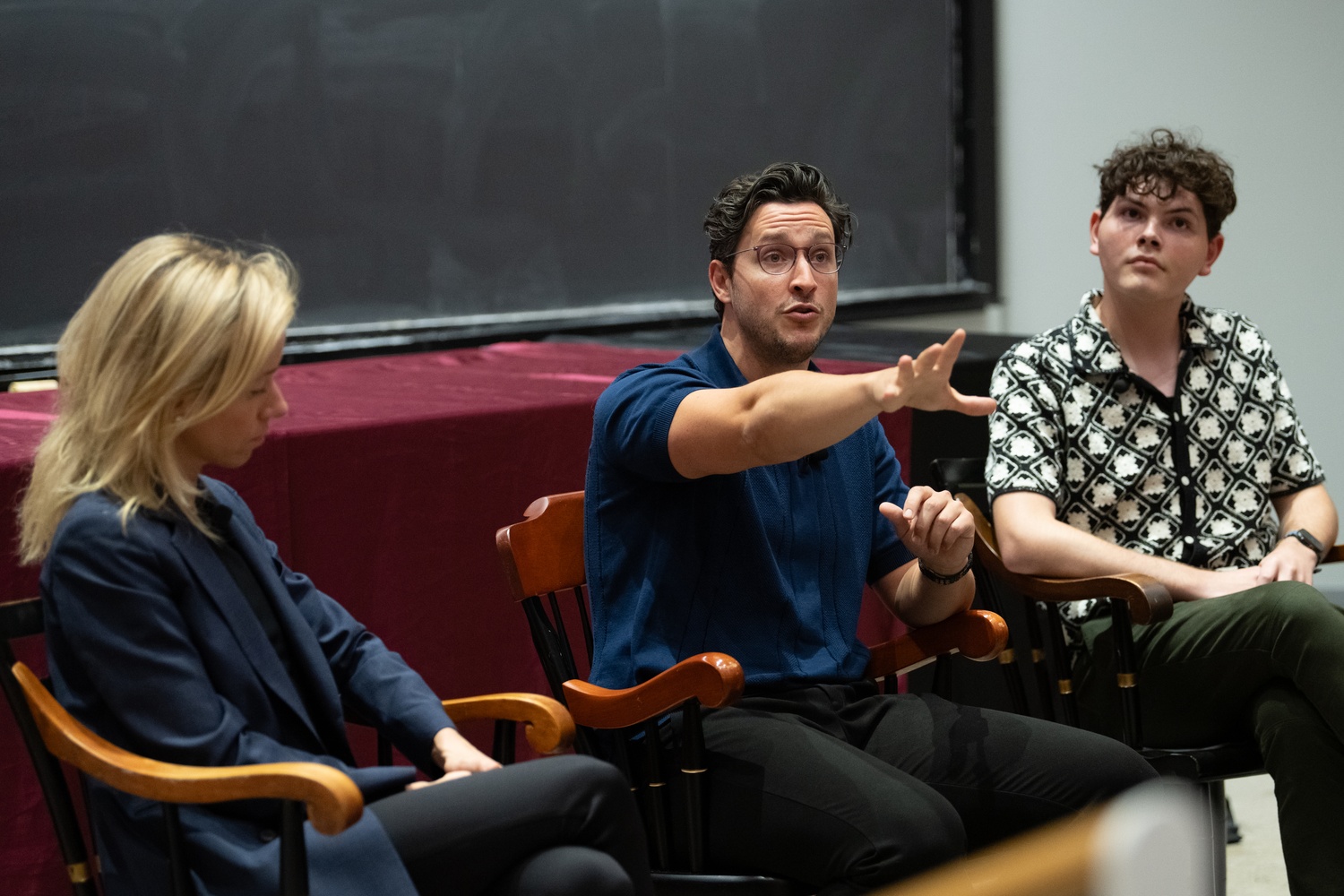
News
Summers Will Not Finish Semester of Teaching as Harvard Investigates Epstein Ties

News
Harvard College Students Report Favoring Divestment from Israel in HUA Survey

News
‘He Should Resign’: Harvard Undergrads Take Hard Line Against Summers Over Epstein Scandal

News
Harvard To Launch New Investigation Into Epstein’s Ties to Summers, Other University Affiliates

News
Harvard Students To Vote on Divestment From Israel in Inaugural HUA Election Survey
Dr. Mike Advocates Social Media Use to Combat Scientific Misinformation at Harvard Talk

Updated October 13, 2025, at 6:31 p.m.
Social media influencer and board-certified physician Mikhail “Dr. Mike” O. Varshavski urged healthcare practitioners to capitalize on social media to combat medical misinformation at a Harvard Premedical Society event Monday night.
Varshavski, the most followed medical professional on social media with a combined 29 million followers across all platforms, first began posting content during his medical residency in 2012, creating educational and comedic content for the general public.
His videos — ranging from medical show reviews to debates with anti-vaxxers — aim to “make the field of medicine relatable, understandable, and fun,” according to Varshavski’s YouTube bio.
The talk was organized as a guest lecture fo Harvard Medical School professor Rebecca Robbins’s First-Year Seminar 74C: “Making Sense of Health Information in the Digital Age.” Speaking to more than 100 Harvard affiliates, Varshavski argued that social media is a potent tool for “human-first” storytelling, which he considers an underestimated method to educate the general public about health.
“A lot of people were naysayers,” Varshavski said, referring to the pushback he faced from his colleagues when he first began accumulating a presence on social media. “They thought that you could only succeed on social media if you make miracle promises, or if you’re sensationalist, or if you lie.”
Varshavski said his platform was evidence of a different reality — one that he hoped would “motivate” audience members.
“We can get 100 million views a month on a single platform by telling the truth. And the reason for this is that people want the truth. They want to be empowered,” he added.
Varshavski emphasized that this level of engagement can enact real policy change.
In 2019, Varshavski’s viral video encouraging airlines to include epipens on board caught the attention of then-majority leader Senator Chuck Schumer (D-NY).
“So from this YouTube video that most people would laugh off, we are now making change, where something like 60 to 70 percent of domestic airlines have epipens on board,” Varshavski said.
Humanizing scientific discussion was fundamental to the success of that policy shift, he added.
“It’s people that move the politicians. So how do you move people? It’s usually through storytelling — through some kind of unique adventure that you take them along,” Varshavski said.
This approach — of prioritizing communication style over pure content — is something that health experts often miss out on, he said.
“They put accuracy, scientific rigor as the top priority, and I agree that should definitely be there,” Varshavski said. “But to me, the human takes precedence over that.”
“What that means is making sure the content is triggering some sort of emotional response — laughter, joy, debate, discussion, intellectual curiosity. Something human-first that triggers people to listen,” he added.
Varshavski stressed that audience members had the power to lead policy changes and strive for higher standards of accuracy on social media as future physicians and scientific communicators.
“The fact that we have brilliant minds like you in this room, studying it, learning from it, my genuine hope is that each and every one of you figure out a way to do it better,” Varshavski said. “I think the opportunities are endless here.”
Want to keep up with breaking news? Subscribe to our email newsletter.
